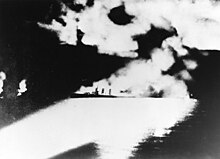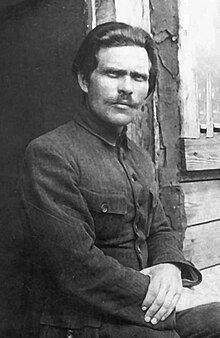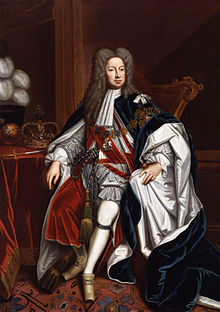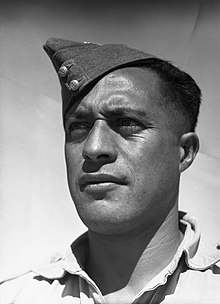Portal:History
The History Portal
History (derived from Ancient Greek ἱστορία (historía) 'inquiry; knowledge acquired by investigation') is the systematic study and documentation of the human past. History is an academic discipline which uses a narrative to describe, examine, question, and analyze past events, and investigate their patterns of cause and effect. Historians debate which narrative best explains an event, as well as the significance of different causes and effects. Historians debate the nature of history as an end in itself, and its usefulness in giving perspective on the problems of the present.
The period of events before the invention of writing systems is considered prehistory. "History" is an umbrella term comprising past events as well as the memory, discovery, collection, organization, presentation, and interpretation of these events. Historians seek knowledge of the past using historical sources such as written documents, oral accounts or traditional oral histories, art and material artifacts, and ecological markers.
Stories common to a particular culture, but not supported by external sources (such as the tales surrounding King Arthur), are usually classified as cultural heritage or legends. History differs from myth in that it is supported by verifiable evidence. However, ancient cultural influences have helped create variant interpretations of the nature of history, which have evolved over the centuries and continue to change today. The modern study of history is wide-ranging, and includes the study of specific regions and certain topical or thematic elements of historical investigation. History is taught as a part of primary and secondary education, and the academic study of history is a major discipline in universities.
Herodotus, a 5th-century BCE Greek historian, is often considered the "father of history", as one of the first historians in the Western tradition, though he has been criticized as the "father of lies". Along with his contemporary Thucydides, he helped form the foundations for the modern study of past events and societies. Their works continue to be read today, and the gap between the culture-focused Herodotus and the military-focused Thucydides remains a point of contention or approach in modern historical writing. In East Asia a state chronicle, the Spring and Autumn Annals, was reputed to date from as early as 722 BCE, though only 2nd-century BCE texts have survived. The title "father of history" has also been attributed, in their respective societies, to Sima Qian, Ibn Khaldun, and Kenneth Dike. (Full article...)
Featured picture
Did you know (auto generated)

- ... that in 1920, Elmer Smith hit the first grand slam in World Series history?
- ... that the Balconcillo mutiny is considered to be the first coup d'état in the history of Peru?
- ... that Seattle Reign FC have had three name changes during their 11-year history?
- ... that archaeologist Lawrence H. Keeley refined the methods of microscopic use-wear analysis to learn about prehistoric stone tools?
- ... that Nakba denial is a form of historical negationism pertaining to the 1948 Palestinian expulsion and flight?
- ... that Central City College was established as an African American-led alternative to the historically black Atlanta Baptist College?
Joel Brand (Hungarian: Brand Jenő; 25 April 1906 – 13 July 1964) was a member of the Budapest Aid and Rescue Committee (Va'adat ha-Ezra ve-ha-Hatzala be-Budapest or Va'ada), an underground Zionist group in Budapest, Hungary, that smuggled Jews out of German-occupied Europe to the relative safety of Hungary, during the Holocaust. When Germany invaded Hungary in March 1944, Brand became known for his efforts to save the Jewish community from deportation to the Auschwitz concentration camp in occupied Poland and the gas chambers there.
In April 1944 Brand was approached by SS-Obersturmbannführer Adolf Eichmann, head of the German Reich Security Head Office department IV B4 (Jewish affairs), who had arrived in Budapest to organize the deportations. Eichmann proposed that Brand broker a deal between the SS and the United States or Britain, in which the Nazis would exchange one million Jews for 10,000 trucks for the Eastern front and large quantities of tea and other goods. It was the most ambitious of a series of proposals between the SS and Jewish leaders. Eichmann called it "Blut gegen Waren" ("blood for goods"). (Full article...)
On this day
November 26: Feast day of Saint Sylvester Gozzolini (Catholicism); Constitution Day in India (1949)

- 1842 – The University of Notre Dame (building pictured) was founded by Edward Sorin of the Congregation of Holy Cross as an all-male institution in the U.S. state of Indiana.
- 1942 – World War II: Josip Broz Tito and the Yugoslav Partisans convened the first meeting of the Anti-Fascist Council for the National Liberation of Yugoslavia at Bihać in northwestern Bosnia.
- 1977 – A speaker claiming to represent the "Intergalactic Association" interrupted a broadcast of Southern Television in South East England.
- 2011 – NASA launched the Mars Science Laboratory mission from Cape Canaveral, carrying the Curiosity rover on board.
- Ralph Agas (d. 1621)
- Rudolph Koenig (b. 1832)
- Adolfo Pérez Esquivel (b. 1931)
- Tina Turner (b. 1939)
Selected quote
What we find in books is like the fire in our hearths. We fetch it from our neighbors, we kindle it at home, we communicate it to others, and it becomes the property of all.
— Voltaire, 18th century French philosopher
Related portals
More Did you know...
- ... that the Japanese aircraft carrier Amagi (wreck pictured) capsized on 29 July 1945 as a result of cumulative damage inflicted by American airstrikes on 24 and 28 July?
- ... that Scandinavian influence in Scotland, still evident today, was probably at its height during the time of Thorfinn the Mighty?
- ... that, after the 2003 invasion of Iraq, the Bassetki statue, which is more than 4,200 years old, was found in a cesspool?
- ... that in medieval art, angels were often depicted wearing feather tights?
- ... that 49% of German military losses happened in the last 10 months of the Second World War in Europe?
- ... that Joshua L. Goldberg, the first rabbi to serve as a World War II U.S. navy chaplain, was a Russian army deserter?
- ... that Richard Nixon chose the Wilson desk as his Oval Office desk because he believed it was used by Woodrow Wilson, informed that it was used by Henry Wilson, Vice President under Ulysses S. Grant, but actually bought by Garret Augustus Hobart, 24th Vice President of the United States under President William McKinley?
- ... that some of the nominally silver Roman coins from the Bredon Hill Hoard only have a 1% silver content?
Topics
Categories

History • By period • By region • By topic • By ethnic group • Historiography • Archaeology • Books • Maps • Images • Magazines • Organizations • Fictional • Museums • Pseudohistory • Stubs • Timelines • Chronology • People • Wikipedia historians
WikiProjects
![]() WikiProject History •
Ancient Near East • Australian History • Classical Greece and Rome • Dacia • Former countries • History of Canada • Chinese history • European history • Heraldry and vexillology • Indian history • Jewish history • Medieval Scotland • Mesoamerica • Military history • Middle Ages • History of Science
WikiProject History •
Ancient Near East • Australian History • Classical Greece and Rome • Dacia • Former countries • History of Canada • Chinese history • European history • Heraldry and vexillology • Indian history • Jewish history • Medieval Scotland • Mesoamerica • Military history • Middle Ages • History of Science
WikiProject Time • Days of the Year • Years
WikiProject Biography • Composers • Political figures • Saints • United States Presidents
Things you can do
 |
Here are some tasks awaiting attention:
|
Associated Wikimedia
The following Wikimedia Foundation sister projects provide more on this subject:
-
Commons
Free media repository -
Wikibooks
Free textbooks and manuals -
Wikidata
Free knowledge base -
Wikinews
Free-content news -
Wikiquote
Collection of quotations -
Wikisource
Free-content library -
Wikiversity
Free learning tools -
Wiktionary
Dictionary and thesaurus


![Image 1 Ivan Khristoforovich Bagramyan, also known as Hovhannes Khachaturi Baghramyan (2 December [O.S. 20 November] 1897 – 21 September 1982), was a Soviet military commander of Armenian origin who held the rank of Marshal of the Soviet Union. During World War II, Bagramyan was the second non-Slavic military officer, after Latvian Max Reyter, to become a commander of a front. He was among several Armenians in the Soviet Army who held the highest proportion of high-ranking officers in the Soviet military during the war. (Full article...)](http://upload.wikimedia.org/wikipedia/en/d/d2/Blank.png)






















































